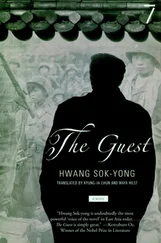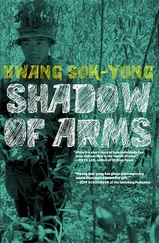“I don’t know about that. The farms have been in turmoil for the last several years; the climate is changing. The Ryanggang Province highlands, for instance, used to be too cold to grow vegetables, but now I hear they have lettuce.”
“How are people supposed to live on lettuce? They should be growing potatoes. The problem is that the summer monsoons dump so much rain that all the crops — corn, potatoes, everything — gets washed away.”
“That’s why the government keeps calling for the ‘great battle’ to replace the topsoil, but no one actually cares enough to try. The earth is too thin for anything to grow.”
“Well, the government likes to throw around that bullshit about ‘self-reliance’ and talk up the virtues of traditional farming, but all that really means is that they can’t afford to modernize. You would need mountains of fertilizer over several years before you could coax anything out of that soil. But hey, at least on the outside, all the companies are hoping things will improve soon.”
“Why? Is something happening?”
“South and North …” Uncle Salamander held his thumbs up next to each other. “Face to face.”
“That is even less likely than Heaven being a real place.”
“No, it’s true. I saw it on Chinese TV.”
“As if those Big Nose Yankees will ever let us be.”
“If North and South worked together instead of fighting each other, then everyone would be better off, and even we Korean-Chinese would be able to live free and proud.”
“You spin a good story.”
Then Uncle Salamander switched to Chinese, and Father asked him things and answered questions in Chinese as well, so we weren’t able to follow their conversation.
A few days after Uncle Salamander left, Musan was turned inside out. Soldiers armed with rifles stood guard in every street, and the People’s Committee building was turned into a funeral parlour. They told us the Great Leader had passed away suddenly. Schoolchildren were sent out in droves to the fields to pick all the wildflowers and make bouquets. We stood in line to enter the Committee building and offer up silent tribute before a photograph of the Great Leader. Every woman we ran across in the street, from teenagers to mothers to grandmothers, was weeping.
“Great Leader!” they cried. “How can we go on without you …?”
The city reverberated with the keening of mothers who sat in groups on cement steps, their faces haggard. The little ones followed suit, even though they had no idea what was going on, crowding together in courtyards and in the middle of the street to weep, their tears mixed with sweat.
That summer was said to be one of the hottest in decades. Not a drop of rain fell all season, but when autumn began it rained hard for several weeks in a row until the fields and mountains had practically changed places. The grown-ups were used to fretting over poor crop yields, but that year a truly fearsome famine began. By winter, rations had been cut off in cities and provinces alike. That was also around the time that our mother’s brother, who’d been working in Chongjin the whole time, showed up at our place looking gaunt. We heard him whispering in a low voice to our parents in the opposite room when he burst into tears suddenly.
“Just how badly did you mess up, that now there’s a deficit?!” Father yelled, his voice so angry that it nearly covered up the sound of our uncle’s bawling.
“Let me guess,” Mother said sharply. “You’ve been gambling again?”
“No, I swear. A company in China wanted octopus and promised to pay us back later with soybeans and cornmeal. I told the fishery co-op to send it, but it’s been three months and the company hasn’t paid us back. So now the co-op is demanding that I pay for it out of my own pocket. I’ve tried calling, but no one answers. Maybe the company went under. Damn it all.”
“You better go talk to Xiaolong,” Mother said.
Our uncle blew his nose.
“He’s got enough problems of his own. We need to have people working in order to have something to sell.”
Father sighed. “That’s true … We were also unable to fill our orders last time. We need to extract more iron ore and sell that to buy some corn.”
As rations were cut and wages came to a stop, miners began to quit and wander around in search of food instead. Countless factories all over the country, both big and small, shut their doors. That night our uncle snuck across the Tumen River. Neither Mother nor Father could stop him. He told them he would go to Yanji himself to find out what had happened to the company. If he couldn’t pay back the fishery cooperative, he would be punished severely and sent to prison. As times had grown tough, anyone who hurt the country’s prosperity was subject to even harsher punishment.
Our mother’s brother never came back after crossing the river that day. That was probably the winter of 1994, so I would have been eleven years old.
My family and I had no idea what was happening in the outside world, but we were able to guess what shape other parts of the country were in from looking at the changes around us. At school, the classrooms weren’t even half-full. Our homeroom teacher was nowhere to be seen, and the number of teachers who did stick around dropped to just four or five within a few months.
One day, I was at the Tumen River with Mi when we saw something drifting downstream. It was the body of a woman floating face-down, with a baby on her back. Mother and child had died together. Had this been ordinary times, my sister and I would have shrieked in shock and run to get someone, but instead we held our breath and watched in silence. The long ties that held the baby sling in place had come undone and were trailing behind the bodies, swaying limply in the current. Later, many more bodies would float past. When they touched the opposite shore, villagers on the Chinese side would push them away with long poles, and on our side soldiers and other strong young men would stand watch and shove the bodies into the middle of the river.
One evening, my sisters and I heard our company-housing neighbours chattering loudly outside. Soldiers were dragging a handcart down the main street. The cart was covered in burlap grain sacks, so we couldn’t tell at first what was in it — but when we saw several pairs of feet poking out, we knew they were bodies. Usually, if someone died in the night, the neighbours would report it and take care of the body, but after that summer the bodies were left in place. Whenever you passed an empty house, the rotting smell, as if someone was brewing soy sauce, was overwhelming.
Our family managed to get by. Father must have been wise enough to see what was coming. During his deals with Uncle Salamander, he would keep some of the sea cucumber or dried octopus that was delivered to the port and trade it for grain, which he’d been stockpiling. He’d lined his own pockets, as it were. One night, I was awakened by the sound of low voices and the front door opening and closing. Our parents were up to something — they kept walking in and out and grumbling like they were carrying something heavy. I tiptoed quietly to the bedroom door and peeked out. Mother and Father were holding each end of a large sack of grain and carrying it somewhere. Later my sisters and I figured out that they’d been using a shed behind the house, where we stored farm tools and other odds and ends, as a hiding place. They’d cleared out the shed, pulled up the wooden floorboards and dug a hole in the earth, which they lined with vinyl, to hide the grain. The shed was my mother’s first stop every morning — she would head out there with a cooking pot in hand before she started preparing food. When we had all caught on, Mother and Grandmother sat us down and lectured us at length.
Читать дальше












